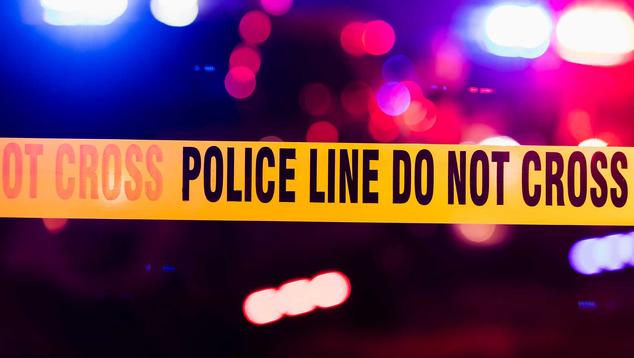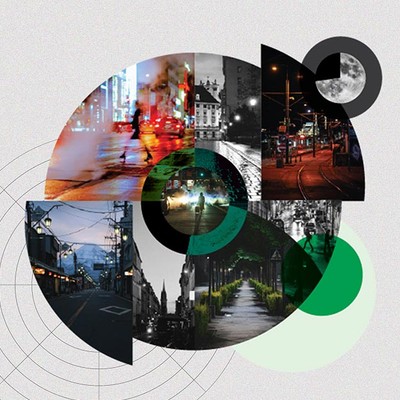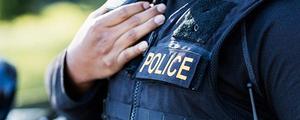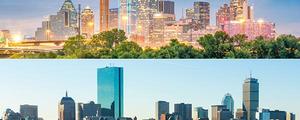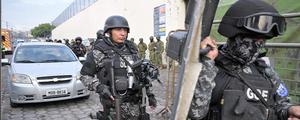Story Highlights
- Liberia displaces Afghanistan as least secure country
- Tajikistan most secure; nearly everyone feels safe
- Canadians lose confidence in their police, feel less safe
WASHINGTON, D.C. -- Even if the world is starting to place a little more faith in law enforcement, it didn’t feel any safer last year, according to Gallup's latest update on its annual Law and Order Index. Outside of a slight increase in people’s confidence in their local police, progress on all other measures of global security remained stalled.
The world scored an 83 out of a possible 100 on the Law and Order Index in 2022 -- unchanged from 83 the previous year.
The index is a composite score based on Gallup World Poll questions asking people whether they are confident in their local police, feel safe in their neighborhoods, and were victims of theft or assault in the past year. Higher scores mean more people in a country feel secure.
Scores at the country level in 2022 ranged from a high of 96 in Tajikistan to a low of 49 in Liberia. Neither of these countries has occupied either of these spots before -- Singapore and Afghanistan have ranked the best and worst on the index for several years -- but Tajikistan and Liberia are frequently among the highest- and lowest-scoring countries from year to year.
Liberia’s low score on the index in 2022 is mostly attributable to the high percentage of residents who have been victims of crime and their lack of faith in the police. A majority of Liberians (53%) said they or other household members had money or property stolen in the past year, which was one of the highest rates in the world, along with Sierra Leone (52%). Also, less than half of Liberians (45%) expressed confidence in their local police.
Tajikistan, the current leader, trailed only Singapore on the index in 2021. Prior to 2022, Singapore had scored the highest on the index nearly every year except 2020. However, Singapore did not receive a score on the index in 2022 because only one of the four index questions was asked.
In Afghanistan’s case, the country’s index score skyrocketed from 51 in 2021 to 76 in 2022, as Afghans’ reports of assault and theft continued to plummet while a record percentage of residents -- bolstered by a solid majority of men -- reported feeling safe walking alone at night. Previously, Afghanistan had scored the lowest on the index in 2018, 2019 and 2021.
For complete results from more than 140 countries and areas surveyed in 2022, read Gallup's 2023 Global Law and Order report.
U.S. and Canada Continue to Head in Wrong Direction
In most regions, the 2022 scores on the Law and Order Index were relatively within the range of where they have been for the past few years. However, scores in post-Soviet Eurasia and Latin America and the Caribbean continued their positive trajectories.
Notably, the score for the U.S. and Canada -- which suffered one of the biggest regional declines in 2021 -- did not change statistically in 2022, but the countries continued to head in the wrong direction. Perceptions of safety declined most in Canada, where the index score dropped four points in 2022 to a new low of 83 -- matching the score for the U.S., which remained stagnant from the previous year.
Although most Canadians continue to trust their local police (78%) and feel safe walking alone at night (74%), both measures dropped to new lows in 2022. The public’s faith has eroded as violent crime keeps rising in Canada, where the murder rate in 2022 was the highest in 30 years.
Afghans No Longer Feel the Least Safe
About seven in 10 people worldwide in 2022 said they feel safe walking alone at night where they live (71%) -- unchanged from the previous year, but still one of the highest percentages compared with most of Gallup’s measures since 2006. The global number masks percentages ranging from as high as 96% in Kuwait to as low as 29% in Lesotho.
While Afghans have consistently felt the least safe of any population around the world for years, residents of the small Southern African country of Lesotho displaced them in 2022. Fewer than three in 10 Basotho (29%) said they felt safe walking alone at night in their area, reflecting the country’s severe problems with violent crime. Lesotho has one of the highest homicide rates in the world. In mid-2023, the country instituted a nationwide nighttime curfew to curb violent crime.
Notably missing from the least safe list is Afghanistan, where a record-high 52% of residents in 2022 said they felt safe walking alone at night where they live. Most of the increase was attributable to more men feeling safe (65%) -- while 39% of women said the same.
Confidence in Police Starts Rising Again
Of the four measures in the index, only people’s faith in their local police showed some promise. After stalling in 2021, people’s confidence in their local police started to rise again, increasing two points to 72% -- a numerical high in Gallup’s 17-year trend.
The results vary significantly by region, however, from a low of 52% in Latin America and the Caribbean to 84% in Southeast Asia.
The relatively low average on this measure in Latin America and the Caribbean is not surprising given the region’s poor performance on all of the Law and Order Index component metrics in 2022 and in previous years. The 52% in the region who were confident in 2022 is on par with the previous year.
Confidence in local police did not decline measurably in any region of the world in 2022, but several regions experienced sizable upticks. South Asia was home to the largest gains in confidence in 2022 -- rising six points from 74% to 80% -- although it did not lead the world on this measure.
The improvements in South Asia largely reflect rising confidence in India, where trust in the local police increased from 75% in 2021 to 81% in 2022 amid calls for reform. Prime Minister Narendra Modi recently called for police forces to be more sensitive and trained in developing technology.
Bottom Line
The United Nations’ most recent progress report on its Sustainable Development Goals for 2030 warned that “structural injustices, inequalities and emerging human rights challenges are putting peaceful and inclusive societies further out of reach” and issued a call to action to “restore trust and to strengthen the capacity of institutions to secure justice for all … .”
Gallup's latest global update on people's perceptions of their own security and faith in the rule of law suggests this concern is warranted. Even with the slight uptick in confidence in local police, the global security picture hasn’t changed much at all in the past several years, and safety remains as much of a barrier to development now as ever.
To stay up to date with the latest Gallup News insights and updates, follow us on X.
For complete methodology and specific survey dates, please review Gallup's Country Data Set details.
Learn more about how the Gallup World Poll works.
